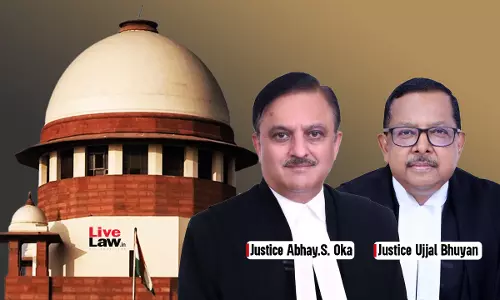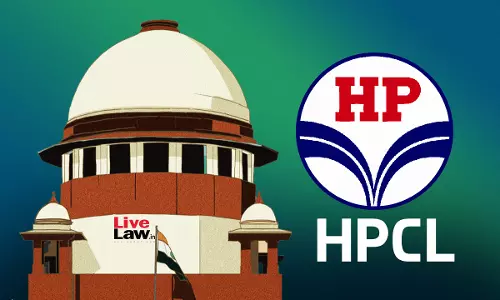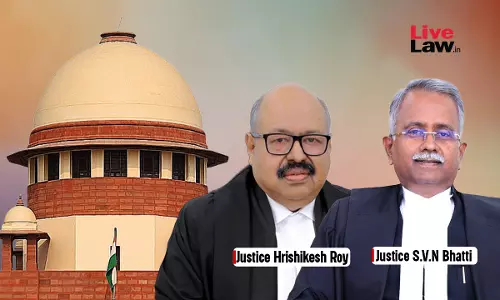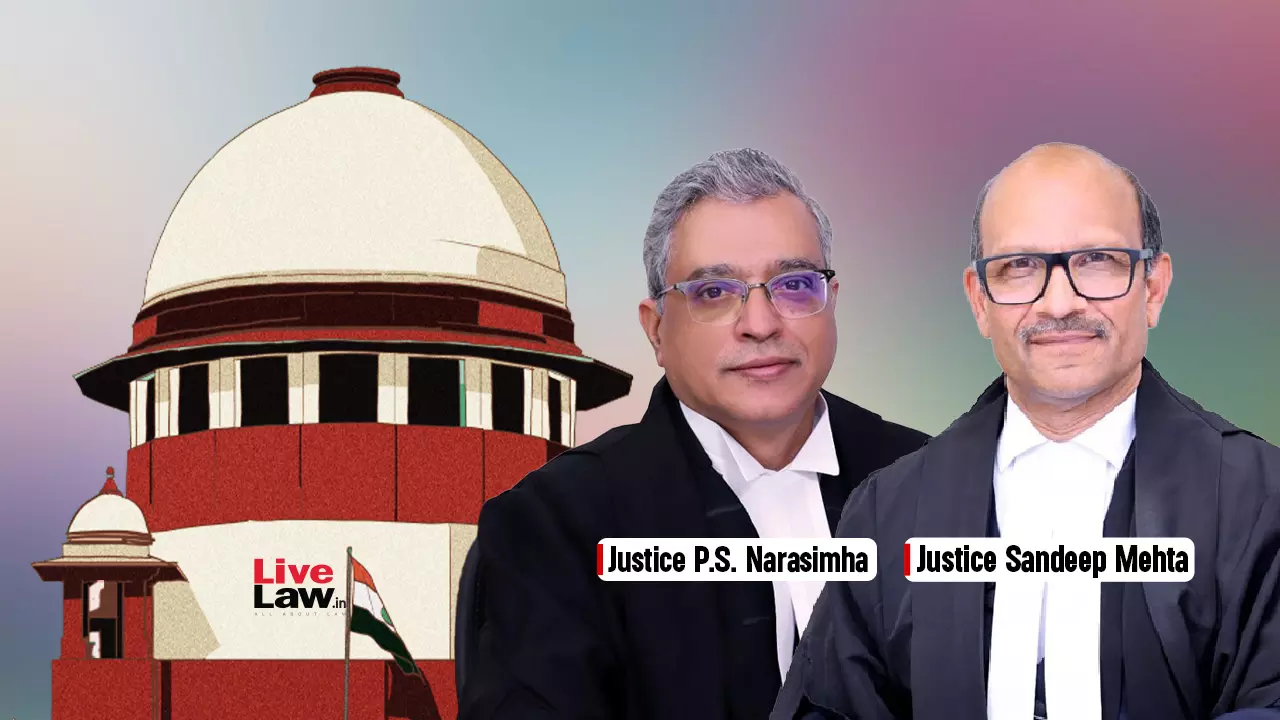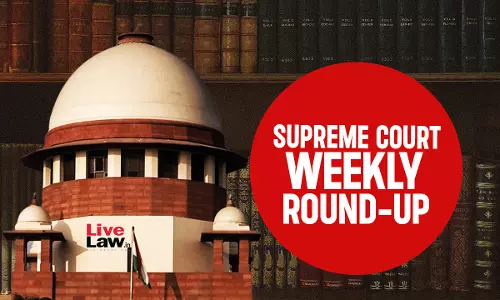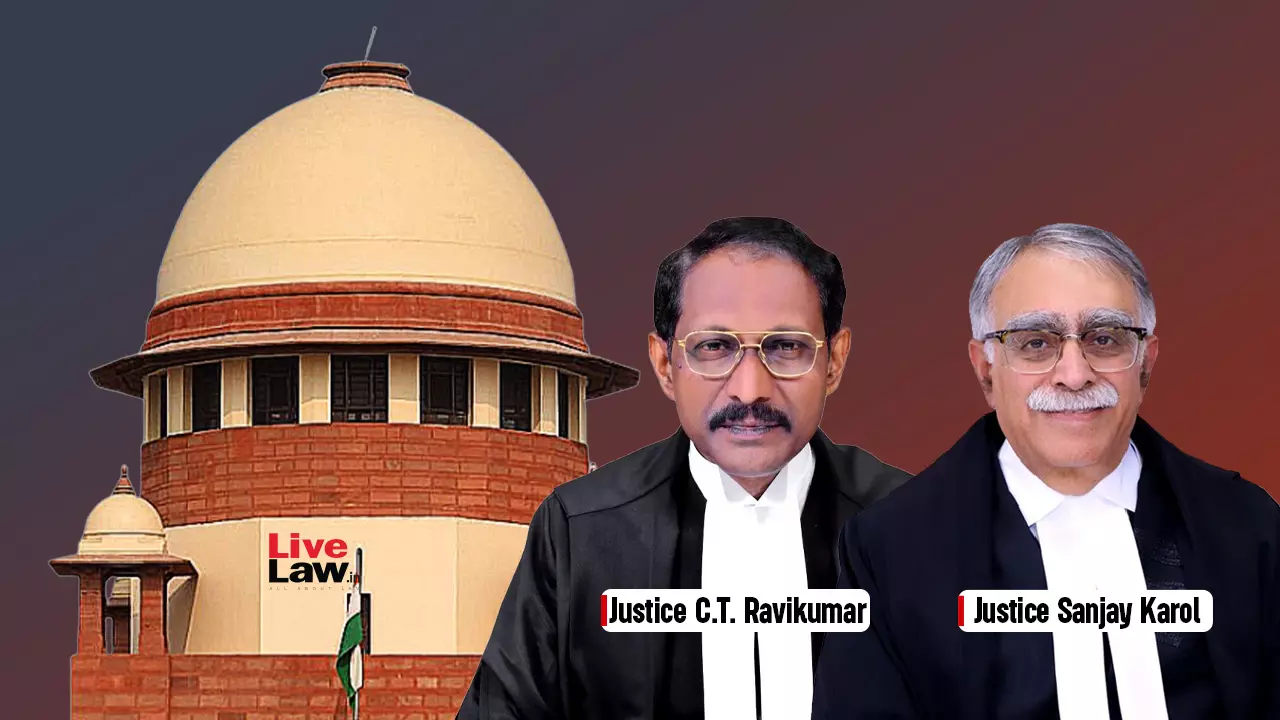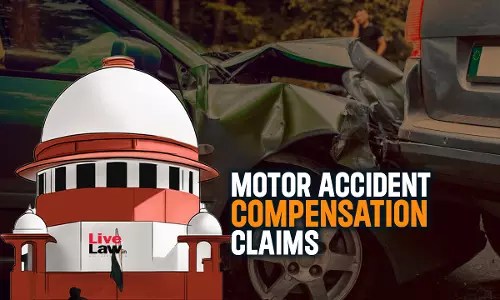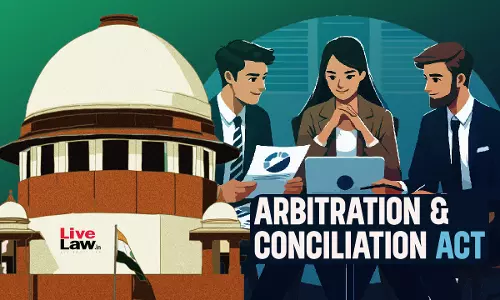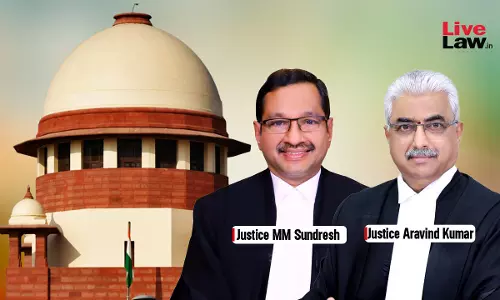Supreme court
No Disciplinary Proceedings Can Be Initiated After Employee Retires Or After Extended Period Of Service : Supreme Court
The Supreme Court invalidated the disciplinary proceedings initiated against a bank employee after the completion of his extended period of service. The disciplinary proceeding initiated after the superannuation or after the extended period of service cannot be sustained, the Court observed. “As has been held by this Court on more than one occasion, a subsisting disciplinary proceeding i.e. one initiated before superannuation of the delinquent officer may be continued post superannuation by...
State Cannot Claim Adverse Possession Over Property Of Private Citizens : Supreme Court
The Supreme Court reiterated that the State cannot claim adverse possession over the property of private citizens."Allowing the State to appropriate private property through adverse possession would undermine the constitutional rights of citizens and erode public trust in the government," observed a bench comprising Justice Vikram Nath and Justice Prasanna B Varale.The observation was made in a judgment dismissing an appeal filed by the State of Haryana raising a claim of adverse possession...
Supreme Court Dismisses HPCL's Plea Against Bombay HC Order Quashing Pension Cuts For 269 Retired Employees
The Supreme Court on Tuesday (November 19) dismissed an SLP filed by Hindustan Petroleum Corporation Limited (HPCL) against the Bombay High Court's decision to quash two notifications that reduced/discontinued pensionary benefits to 269 retired employees.A bench of Justice Abhay S Oka and Justice Augustine George Masih said that the notifications were issued without following the principles of natural justice.“As noted earlier, the decision was taken belatedly on 14th March, 2016. As far as the...
When Absent Employee Doesn't Inform Whereabouts, Employer Can Treat It As Abandonment Of Service & Take Action : Supreme Court
In a recent case, the Supreme Court justified the termination of the service of an LIC employee who failed to communicate the whereabouts of his absence from duty under the LIC Staff Regulation, 1960. The bench comprising Justice Hrishikesh Roy and Justice S.V.N. Bhatti allowed the LIC's appeal against the High Court's decision directing reinstatement of the respondent employee who remained absent from the duties and didn't reply to the notices sent by the LIC on several occasions. Also, the...
Labour Court's Factual Finding Shouldn't Be Normally Disturbed By Writ Court Without Compelling Reason : Supreme Court
Observing that the factual findings of a Labour Court should not be normally disturbed by a Writ Court without a compelling reason, the Supreme Court ordered the reinstatement of an employee who had been terminated due to conflicts arising from his estranged marital relationship. The bench comprising Justice Hrishikesh Roy and Justice S.V.N. Bhatti allowed the appeal of the employee.In this case, the appellant secured a job as a 'Helper' as part of the rehabilitation package after his...
Recording Evidence Mandatory In Disciplinary Proceedings Proposing To Impose Major Penalties: Supreme Court
The Supreme Court directed the reinstatement of a government employee whose termination was based on an inquiry report imposing a major penalty without adequately proving the charges. The court emphasized that the recording of evidence in a disciplinary proceeding proposing charges of a major punishment is mandatory."This Court in a catena of judgments has held that the recording of evidence in...
Supreme Court Weekly Round-up: November 11, 2024 To November 17, 2024
Nominal IndexCitationsM/S Crystal Transport Private Limited & Anr. v. A Fathima Fareedunisa & Ors., Civil Appeal Nos.7709–7710 of 2023 2024 LiveLaw (SC) 881Sonu Choudary v. State of NCT Delhi, Criminal Appeal No. 3111 of 2024 2024 LiveLaw (SC) 882Shyam Kumar Inani v. Vinod Agrawal & Ors., Civil Appeal No. 2845/2015 2024 LiveLaw (SC) 883In Re: Directions in the matter of...
'Consideration' Need Not Be Monetary: Supreme Court Upholds Settlement Deed Requiring Transferee To Care For Transferors & Do Charity
The Supreme Court upheld a property transfer based on a settlement deed requiring the transferee to care for the transferors and perform charitable work.The bench comprising Justice CT Ravikumar and Justice Sanjay Karol rejected the argument that the consideration can only be in money. Instead, it justified the consideration of taking care of the transferor and doing charity work as a...
Motor Accident Compensation - Future Prospects Must Be Considered In Cases Of Self-Employed & Fixed Salaried Individuals : Supreme Court
In a recent ruling, the Supreme Court disapproved of the High Court's decision not to take into account the future prospects while determining motor accident compensation. The High Court had excluded fixed-salary and self-employed earners from such consideration, ignoring the impact of inflation and the natural progression of careers. The bench comprising Justice Vikram Nath and Justice...
S. 11(6) A&C Act | Referral Courts Should Limit Its Enquiry To Prima Facie Existence Of Arbitration Agreement : Supreme Court
In a recent decision, the Supreme Court reiterated that the referral courts under Section 11(6) of the Arbitration & Conciliation Act, 1996 (“Act”) should refrain from conducting an in-depth factual analysis of the dispute. Instead, their role is confined to assessing the prima facie existence of an arbitration agreement. “The scope of inquiry under Section 11 of the Act, 1996...
No Absolute Bar For Proclaimed Offender To Seek Benefit Of Anticipatory Bail : Supreme Court
The Supreme Court recently noted that being declared a proclaimed offender under Section 82 of the Cr.P.C. does not impose an absolute bar on the accused from seeking anticipatory bail. “Coming to the consideration of anticipatory bail, in the event of the declaration under Section 82 of the Cr.P.C., it is not as if in all cases that there will be a total embargo on considering the...
Ensure Victim's Presence Before Quashing Serious Offences, Especially Against Women, Based On Settlement: Supreme Court To High Courts
The Supreme Court has advised High Courts to exercise caution before quashing non-compoundable cases based on settlement between the victim and the accused. Without ensuring that the settlement is genuine, quashing petitions should not be allowed.Even if there is an affidavit of the victim accepting the settlement, it is advisable to seek the victim's presence, either physically or...

